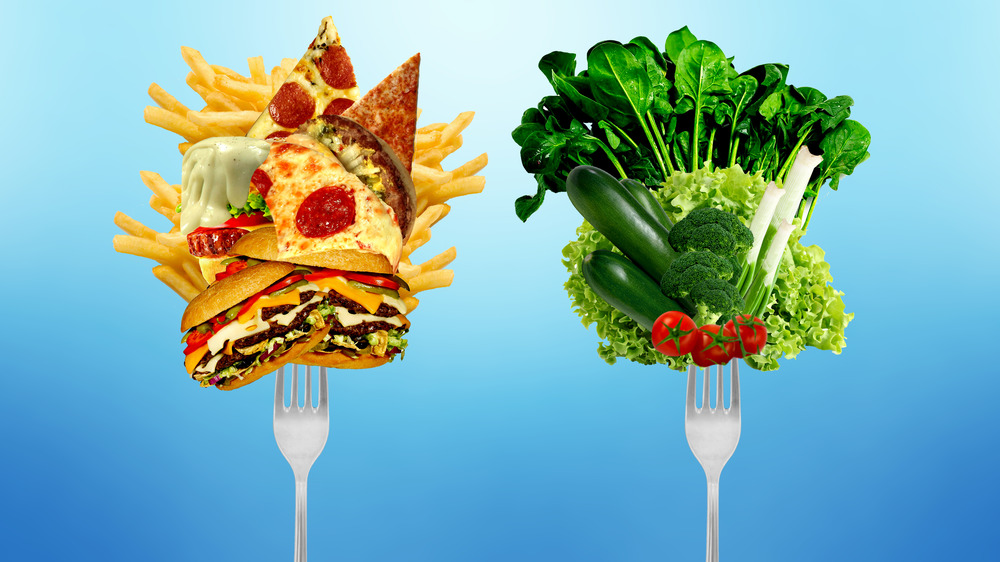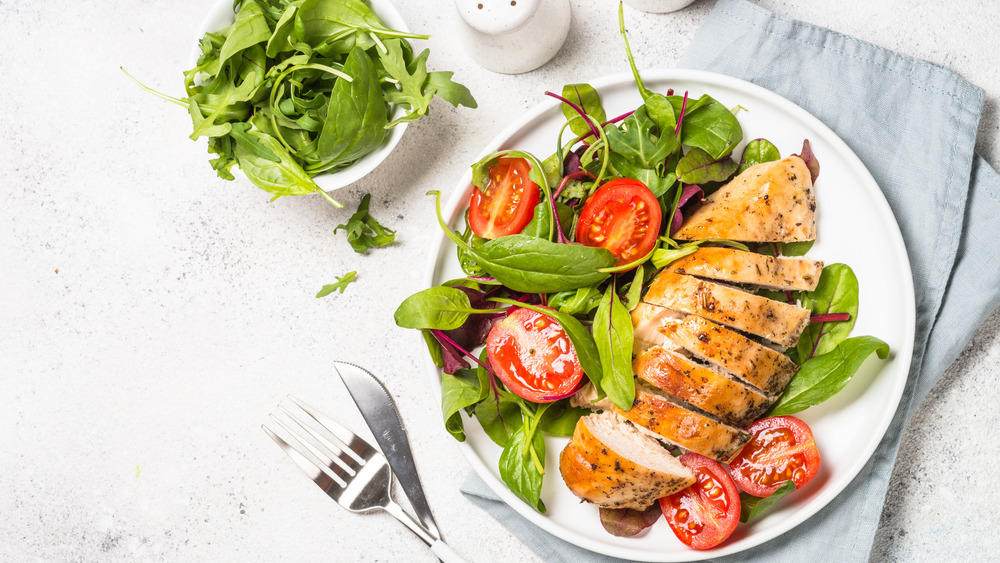Why Not All Calories Are Created Equal
If all calories are equal, you may be wondering if you can skip the salad in favor of the ice cream diet. Couldn't you simply lose weight through a calorie deficit, whether your calories come from a slice of cake or a massive plate of vegetables? While technically a single calorie (the measurement of energy) is the same across the board, a calorie from a stalk of celery and a calorie from a cookie do different things for our bodies, according to Healthline.
Different foods have different thermic effects in the body, meaning some foods take more energy to be digested than others. Calories from protein, for example, take significantly more energy to digest and absorb, which means that their overall addition to your body's fat stores is lessened. You can eat the same number of calories from carbohydrates and from protein, but your net total calories once digestion is accounted for will be less with the protein. Protein also helps improve satiety, meaning that protein-based calories will help you feel fuller longer, compared to calories from carbohydrates or fat (via Healthline).
What about nutrient density?
We don't just eat food to feel full; We eat food because we need a certain profile of macro and micronutrients in order to survive and thrive. A diet based solely on eating white bread, for instance, would be lacking in protein and fat as well as critical micronutrients like vitamins and minerals. You might be getting enough calories to survive, but without a variety of nutrients, your health would suffer (via Training Peaks).
Rather than focusing on counting calories (an inexact science, anyway), you're better off eating a variety of whole foods that are packed with the nutrients you need. That means adding more vegetables and fruits, whole grains, lean proteins, and healthy fats to your diet. Focus on eating until you feel full, chewing slowly and enjoying each bite, and thereby gaining a better sense of what satisfaction from your food means for you (via Self).


